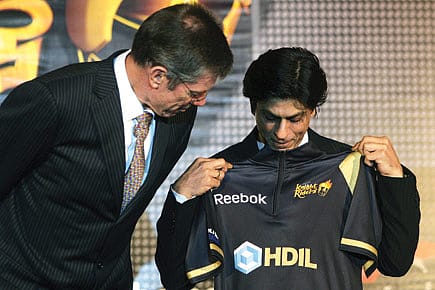Knight Vision

When an Aussie talks about cricket, the world stops to listen. But John Buchanan's book disappoints.
Ever since the former Ashes winning England captain Mike Brearley retired in the early 1980s, the post of cricket's resident philosopher has been lying vacant. There have been several claimants, ranging from legendary cricketers to journeyman coaches. However, mere on-field achievements don't get you the job. The list of captains, and even coaches who've achieved greater glory with far less resources is long. Brearley's 1985 book, The Art of Captaincy, considered the best on the subject, his Cambridge education and a post retirement career as a psychoanalyst all added to his aura.
With the notable exception of Bob Woolmer, who in a sense laid down his life for the game, and Duncan Fletcher, the pasty-faced Zimbabwean, the contenders are all Australian. Given the phenomenal success of their national team in the last two decades, almost everyone has sought out the services of an Aussie or two, of varying pedigree, to understand and deconstruct the 'Aussie Way'. When an Australian talks about cricket, everybody listens. In 2005, when Greg Chappell made his presentation to a BCCI committee that was scouting for a coach, an official present in the room recalls that everyone, other than Sunil Gavaskar, was left spellbound. His appointment was never in doubt after that meeting. Even when he quit the job as India's coach after the 2007 Word Cup debacle, many in the establishment wanted him to remain associated with Indian cricket.
Openomics 2026: Continuity and Conviction
06 Feb 2026 - Vol 04 | Issue 57
The performance state at its peak
Similarly, Australia's double World Cup winning coach, John Buchanan, is a popular man in India, despite his dismal stint with the IPL franchise Kolkata Knight Riders. From management workshops to making motivational speeches, his services are still sought after by several business houses in India. Buchanan's latest book is part of his effort to solidify his status as the foremost cricket visionary. He promises a candid as-he-sees-it view of the marriage of sport and business and surely he's in a better position than most others to do that. Buchanan's coaching methods were right out of corporate HR handbooks (bootcamps in the bush, and motivational memos slipped into players' rooms at night) and he's had a bigger role and budget at KKR than any other fellow IPL coach.
One of the objectives of the book is to throw up new ideas to make the game global. Buchanan wants cricket administrators to work towards making T20 an Olympic sport by 2020, and to make that happen, the game must attain reasonable popularity in the US and China. His cricket ideas include playing the game in indoor stadiums to cut out weather interventions, batting and bowling pens a la baseball, where batsmen and bowlers could practice hitting and throwing even while the game is on, and red and yellow cards for slow over rates and on-field misdemeanours. These are hardly original ideas. Much of what Buchanan says has either been already said or tested out by the likes of Woolmer and Bobby Simpson. Remember, Hansie Cronje using the earpiece to communicate with his coach during the game against India in the 1999 World Cup?
Buchanan is effusive in his praise for his former employer Shah Rukh Khan, but is miserly in analysing his team's poor performance. There is a long-winded explanation of his multiple captaincy theory, but seems it was a forced strategy with not many natural leadership choices other than Ganguly, who Buchanan didn't consider an 'automatic' pick.
The book is surprisingly low on the controversy quotient despite the media's (and perhaps the publisher's as well) efforts to spark off a war of words. That Sachin Tendulkar, Dravid, Ganguly and Ricky Ponting are not tailormade for the T20 game is a fact not many serious followers of the game would contest. Contrary to all the stories that emanated from the KKR dressing room during IPL2, Buchanan professes great respect towards Ganguly and draws comparisons with Ian Chappell's style of combative leadership. 'He has an inquisitive mind and wanted to know all about Ponting, Warne and McGrath and how they go about what they do. I sensed he was measuring himself against them, checking to make sure his method was comparable to that of the greats of the game,' he writes. The Prince of Kolkata cannot expect greater praise in a book written by an Australian. His views on Yuvraj Singh as a spoilt brat, too, are nothing new. Several ex-cricketers from India and around the world have had similar things to say about the gifted left-hander. Even when he writes about Shane Warne, who has never approved of Buchanan's methods, he holds back his punches. 'I believe in analysis, he believes in keeping things simple.'
Maybe Buchanan should try out Warne's strategy in his next assignment.
